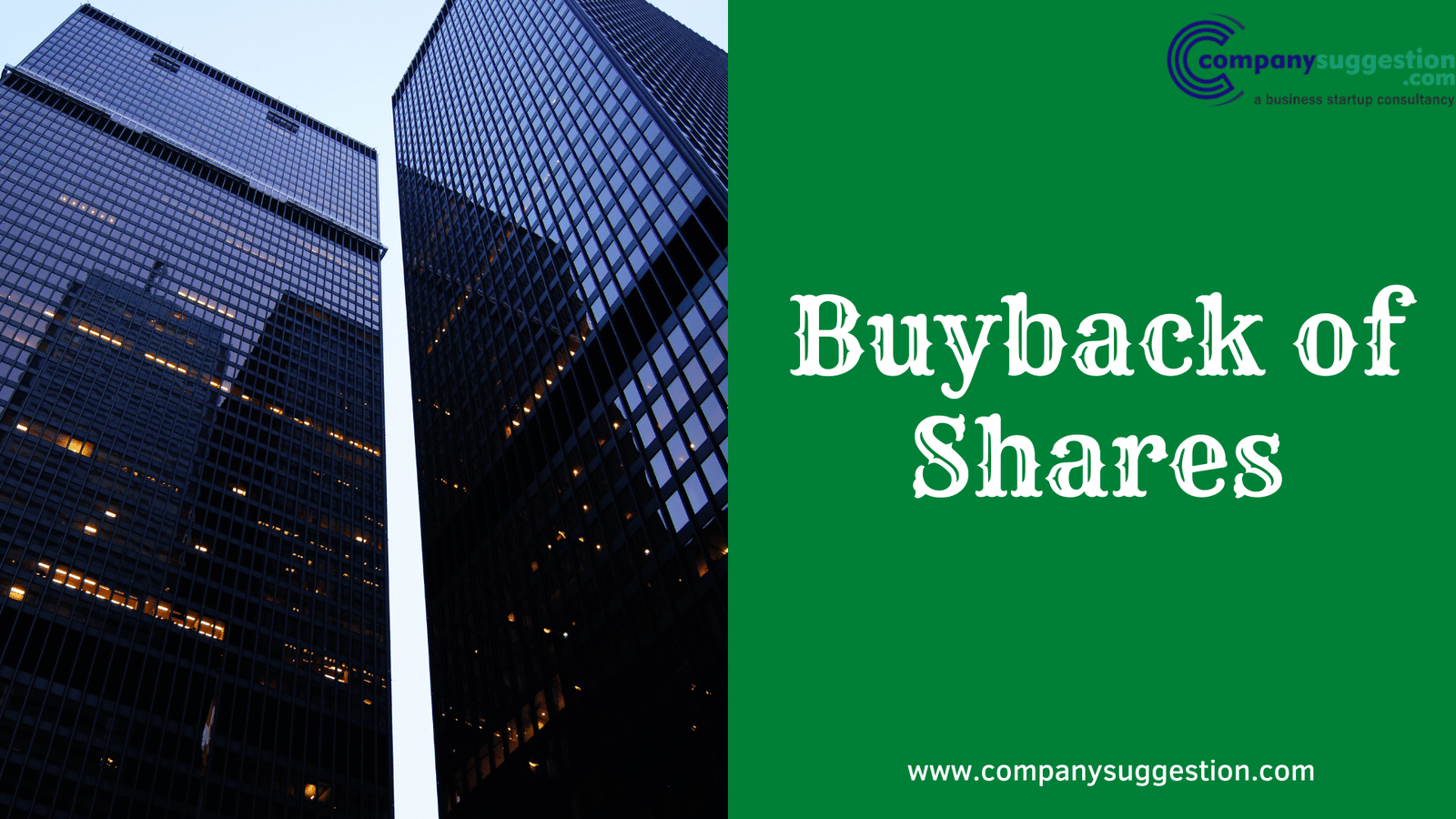Introduction
Buy-back is also termed as Shares Repurchase. When a firm purchase its own outstanding shares to reduce the number of shares which are available in the open market. A buy-back indicates to investors that the firm has enough cash kept aside for emergencies, and there are fewer chances of economic troubles. Firm could opt for buy-back even for compensation related reasons.
What is buy-back?
Buy-back is the process by which the Company buy-back its shares from the existing shareholders usually at a price higher than the market price. When the company buy-back the shares outstanding in the market reduces/fall. It is the option available to Shareholder to exit from the Company business. It is governed by Section 68 of the Companies Act, 2013.
Sources of buy-back
A company may purchase its own shares or other specified securities:
- its free reserves
- the security premium account, or
- the proceeds of the issue of shares and other specified securities
However, no buy-back of any kind of shares can be made out of proceeds of an earlier issue of same kind of shares.
Modes of buy-back
Buy-back may be done in following manner:
- Buy-back of shares from an open market.
- Buy-back of shares from existing shareholders on proportionate basis.
- Buy-back from employees – sweat equity and stock option.
Conditions of buy-back
As per Section 68 of Companies Act, 2013, A Company may buy-back its own shares, only if the following conditions are satisfied:
- The buy-back is authorized by the article of association of the company.
- A special resolution has been passed in the general meeting of the shareholders, authorizing the company to buy-back its own shares.
- The amount of total payment towards buy-back of shares in a year shall not exceeds the 25% of the paid up equity share capital and the reserves of the company.
- The post buy-back ratio of debt to equity capital and free reserves should not exceed 2:1. However the central Government may prescribe a higher debt-equity ratio (more than 2:1) to be applicable for a class or certain classes of companies.
- Only the fully paid-up shares are qualified for buy-back. No partly paid-up shares can be bought back by the company.
- The buy-back should be completed within a period of one year from the date of passing of special resolution or board resolution, as the case may be.
- The buy-back of shares or other securities listed on any recognized stock exchange is in accordance with the regulations made by the Securities and Exchange Board of India in this behalf.
Restrictions on Buy-back
According to section 70 of Companies Act, 2013. A company should not buy-back its securities or other specifies securities, directly or indirectly:
- Through any subsidiary company or subsidiary of a subsidiary company.
- Through any investment company or group investment companies, or
When company has defaulted in repayment of deposits or interest payable thereon, or in redemption of debentures or preferences shares or repayment of any term loan. The prohibition is lifted if the default has been remedied and a period of 3 years has elapsed after such default ceased to subsist.
No company shall, directly or indirectly, purchase its own shares in case such company has not complied with the provisions of :
- Annual return (Section 92)
- Declaration of dividend (Section 123)
- Punishment for failure to distribute dividend (Section 127)
- Financial statement (Section 129)
Punishment for Non-Compliance:
If a Company or every officer makes any default in complying with the provisions of Section 68 or SEBI regulations, punishable with fine shall not be less than 1 lakh but may extend to 3 lakh rupees.












